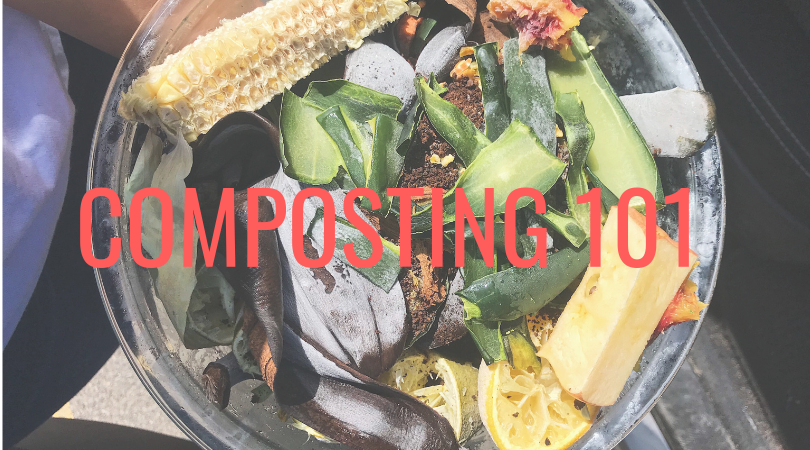You’ve probably heard about it, but sometimes compost can be intimidating. Maybe you have some concerns, or maybe you just don’t have enough information to decide if composting is for you. Below is an overview of everything you’ve been wondering.
What is composting??
Composting is the act of disposing organic matter in open-air systems. Compost is the nutrient-rich soil that results. Organic matter for composting can include: fruit and veggie scraps, yard waste, paper products, coffee grounds, egg shells, stale breads … the list goes on forever! Perhaps it is more helpful to note that you should not compost animal products, like meats and cheese, and sometimes citrus.
Why should you compost??
Organic matter needs oxygen to properly, naturally break down. When organic matter is sent to a landfill in a plastic bag, smushed under other trash, the waste breaks down anaerobically. Without the oxygen-hungry (aerobic) bacteria, the organic matter produces methane. Methane is ~24x more harmful than CO2 – it’s one of our most concerning greenhouse gases. Landfill waste is just about as detrimental to atmospheric warming as transportation or some animal agriculture… and it’s an easy footprint to reduce.
How do you do it??
If you do not have the option of a backyard composter, you could find local services simply via Google. Compost services typically cost ~$20/month, with biweekly pick-ups. In between pick-ups, you can freeze compost to prevent rotting and associated smells. You could also look into dropping off compost yourself at local nurseries, small grocers, community gardens, farms… I drop mine off at my local CSA.
If you are able to set up your own compost system, you’ve got options!
- The easiest way to begin composting yourself is with a compost tumbler. You fill it with some dirt, paper, yard scraps, food waste … and tumble the container periodically to speed up the decomposition process.
- A lower-cost route is an above-ground compost site. These are basically little pits, bordered off with wooden boards or a similar outline. You could turn the dirt periodically if you’d like; with turning, you speed up the break-down processes by the aerobic bacteria. It’s not totally necessary but without turning, above-ground systems take about 12-16 months to start producing compost soil.

